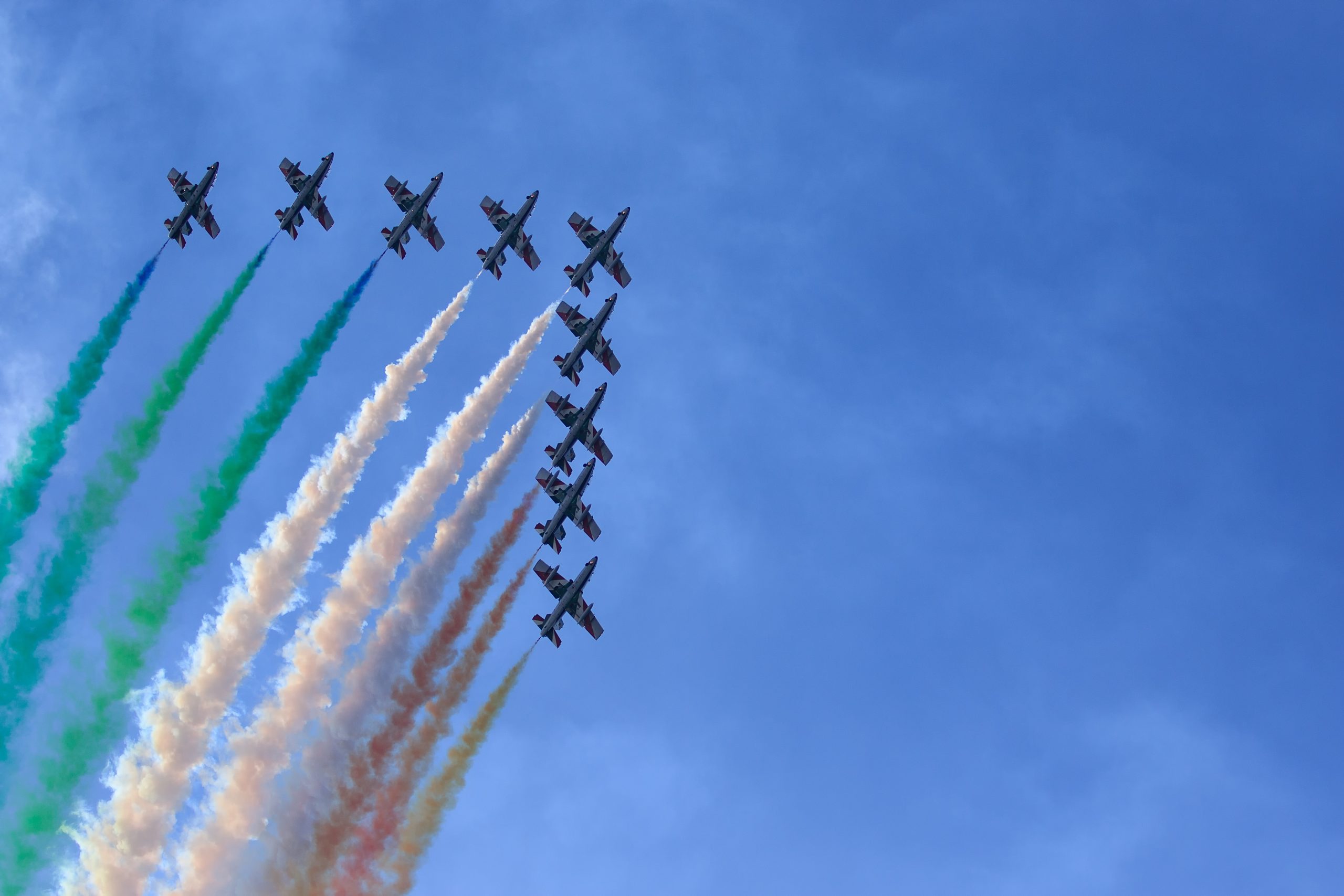In case you wish to get into the Indian Force, your gateway is the AFCAT., or the Air Force Common Admission Test conducted by the Indian Air Force. The exam is held twice a year in February and August, respectively, to select Class-I Gazetted Officers in Flying and Ground Duties (Technical and Non-Technical).
AFCAT is a gateway for both male and female candidates who wish to join the Indian Air Force for both Short Service Commission in Flying Branch and Permanent Commission/Short Service Commission in Ground Duties for both Technical and Non-Technical roles.
Candidates are selected based on their performance in the online exam and Air Force Selection Board (AFSB) interview. Candidates opting for Ground Duty (Technical) branches are required to appear in both AFCAT and Engineering Knowledge Test (EKT).Indian Air Force is going to conduct AFCAT 2020 Exam on 22nd to 23rd February 2020 for Group A Gazetted Officers in Flying and Ground Duty (Technical and Non-Technical) branches
Eligibility:
Candidates should have passed with a minimum of 60% marks each in Maths and Physics at 10+2 level and
Graduation (any Disciplines) or BE/B Tech degree or Candidates who have cleared Section A & B examination of Associate Membership of Institution of Engineers (India) or Aeronautical Society of India in relevant Engg disciplines
Degree or PG Degree (Relevant Subjects)
Exam Pattern
The AFCAT 2020 Selection process consists of three phases – Online Exam/ EKT for Technical Candidates, Interview and Final Selection after Medical Test.
Age Limit:
For Flying Branch:
- Minimum: 20 Years
- Maximum: 24 Years
- Candidates born between 02-01-1997 to 01-01-2001 (both dates inclusive)
For Ground Duty (Technical & Non-Technical) Branch:
- Minimum Age: 20 Years
- Maximum Age: 26 Years
- Candidates born between 02-01-1995 to 01-01-2001 (both dates inclusive).
The AFCAT Online Exam and Engineering Knowledge Test (EKT) will be held in online mode consisting of objective type questions. AFCAT Online Exam will be conducted for Non-Technical Candidates. For Technical Candidates, both AFCAT Online Exam and EKT Exam will be conducted by the Air Force.
| Exam | Subject | No. of Questions | Marks | Duration |
|---|---|---|---|---|
| AFCAT (For both Non-Technical & Technical Candidates) |
General Awareness, Verbal Ability in English, Numerical Ability and Reasoning and Military Aptitude Test | 100 | 300 | 2 Hours |
| Engineering Knowledge Test (EKT) (For Technical Candidates) |
Mechanical, Computer Science and Electrical & Electronics | 50 | 150 | 45 Min |
- Marking Criteria: +3 for each correct answer, -1 for each incorrect answer
- General Awareness – History, Sports, Geography, Environment, Civics, Basic Science, Defence, Art, Culture, Current Affairs, Politics etc.
- Verbal Ability – Comprehension, Error Detection, Sentence Completion, Synonyms, Antonyms and Testing of Vocabulary.
- Numerical Ability-Decimal Fraction, Simplification, Average, Profit & loss, Percentage, Ratio & Proportion and Simple interest.
- Reasoning & Military Aptitude Test-Verbal Skills and Spatial Ability.
Phase-2: Air Force Selection Board (AFSB) Interview
Indian Air Force (IAF) will prepare a list of candidates who obtain the minimum qualifying marks in the Online AFCAT and will be called at one of the Air Force Selection Boards (AFSB).
AFCAT AFSB Entry: Candidates who have applied for NCC Special Entry and Meteorology Branch will be directly called for AFSB testing at one of the AFSB centres. The AFSB centres are at Dehradun (1 AFSB), Mysuru (2 AFSB), Gandhinagar (3 AFSB) and Varanasi (4 AFSB). Candidates who opt for the flying branch can only opt for Dehradun, Mysore and Varanasi.
Stage-I: Officer Intelligence Rating Test along with Picture Perception and discussion test will be conducted on the first day. Stage-I test is a screening test and only those who qualify would undergo subsequent testing. All Stage-I qualified candidates would be subjected to document check to ascertain their eligibility for the branches applied for.
Stage-II: Psychological test will be conducted on Day 1 (Afternoon) and the Group Tests and Interview would commence after the document check for the next five days.
Stage-III For Flying Branch: Computerised Pilot Selection System (CPSS) would be administered to recommended candidates only. This is once in a lifetime test. Candidates who have failed the CPSS/PABT in an earlier attempt or a Flight Cadet suspended from flying training at Air Force Academy will not be eligible.
Final Selection after Medical Test
Final Merit List: Indian Air Force (IAF) will select only those candidates who will secure the minimum qualifying marks separately in written examination and AFSB test as fixed by the IAF. Candidates will be placed in the order of merit on the basis of the total marks secured by them in the written examination and in the AFSB tests.
Training. Candidates recommended by the AFSBs and found medically fit by the appropriate medical establishment are detailed for training strictly on the basis of merit and availability of vacancies in various branches/ sub-branches.
(a) Date and Duration of Training: Training is scheduled to commence in the first week of January 2021 for all courses. The approximate duration of training for Flying and Ground Duty (Technical) Branches is 74 weeks and that of Ground Duty (Non-technical) Branches is 52 weeks at Air Force Training Establishments.
(b) Physical Conditioning: Candidates are advised to keep themselves in good physical condition to adapt to physical training at AFA which encompasses running, swimming, rope climbing and other forms of physical training/conditioning in which they would undergo mandatory tests during training.
Preparation Tips
Revisit NCERT text books:
GK covers sports from current affairs mainly such as the recent ICC cricket of the year, Arjuna Award winner etc. It has history (both national and world). There are questions like which viceroy passed the vernacular press Act , ancient history has questions on Ashoka, Harappa too for example. Polity and geography are sparse. Revisit your NCERT text books from class 6–10. Also use an atlas while preparing, this will help you form a picture of the historical facts and make it easier for you to remember.
Prepare a learning capsule
Numerical Ability is all about speed and accuracy. To score well in this section,you need to remember all the formulae. You can prepare a capsule just of the formulae and revise them.It will help you remember them for longer and use effectively in the examination hall.
Maintain a Reading Log:
To prepare for the English section, you need to read as much as you can. Maintain a reading log where you constantly monitor your reading speed, like how many words can you read and comprehend per minute. This would help you truck through the Reading Comprehension passage faster. When preparing for English, you should also focus on Synonyms and Antonyms. If you get stuck there, use the elimination process while selecting the correct option. For instance, in case you have to find out the synonym of undulate and there are four options (a)retard (b) decrease (c) wave (d) flood; c and d are eliminated as they are nouns whereas undulate is a verb.
Solve previous year papers
Going through previous year papers and solving mock tests will boost your AFCAT preparation. This will not just help you get a better understanding of the types of questions asked but will also help you develop techniques to solve them quickly. Further, online mock tests will prepare you for the computer-based test. By solving these tests you can work on your speed, focus on your strengths and can make a list of the mistakes that you don’t have to make in the examination hall.
Military Aptitude
This is one of the most challenging sections of the AFCAT exam. You need to work on attention and regularly practice to prepare for this section. When preparing for Military aptitude, focus more on verbal skills and spatial ability.
Play on your strengths
As there’s no sectional cutoff, play on your strengths. If you’re good at quantitative analysis then you should be able to solve that section entirely. It consists of mostly metric level trigonometry, geometry, algebra etc.
EXAMPLES OF QUESTIONS
Read the following passage carefully and answer the questions given below.
The awareness of equal corruption will be a better emotional basis for the so-called multiracial commonwealth, of which much is made, than its professed principle-the pursuit of common aims in world politics, aims which are so rarefied that a large volume of artificial political oxygen is needed to keep that body-politic breathing. After all, it cannot be denied that even the United States and the Soviet Union are pursuing common aims in world affairs, such as peace, disarmament, democracy, technological progress, as well as freedom as understood by each. But that is not preventing them from doing things which might lead to the destruction or near destruction of mankind. Thus, common aims would seem to be very undependable as guarantees for goodwill and co-operation among nations. On the contrary, a frank admission of being equal sinners would at least encourage charity and discourage moral arrogance. That would be a better foundation for integration for international and multi-racial co-operation.
Q1. The Commonwealth is characterised by (a) the failure of the constituents to work for the same goals (b) the racial nature of its membership (c) uniform lack of moral standards (d) constant redefining of objectives
Q.2 The super powers may claim to have the same laudable objectives, but these (a) do not work earnestly to achieve them (b) undo each other’s efforts (c) still act against the interest of mankind (d) do not see them in the right perspective
In each of the following questions, find out which part of the sentence has an error. If there is no mistake, the answer is (d) “No error”.
Q1 He charged me (a)/one hundred rupees for five dozens(b)/oranges of average quality (c). No error (d).
- (b) (c) (d)
Pick out the most effective word from the given words to fill in the blank to make the sentence meaningfully complete.
Q1. Everyone was ________ by surprise when she announced her plan to marry that man.
moved (b) shaken (c) taken (d) disturbed
General Awareness
Q.1 Name the first person who went in the space
(a) Yuri Gangarin (b) Neil Armstrong (c) Rakesh Sharma (d) John Glann
Q2. The first Indian woman who won a medal in Olympic is-
(a) PT Usha (b) Shiny Abraham (c) Dala Banerjee (d) Karram Malleswari
Numerical Ability
Q1. When simplified (2.43 x 2.43 + 2.43 x7.57 x 2 + 7.57 x 7.57) is equal to-
- 10 (b) 100 (c) 101.89 (d) 200.59
Q2. The sum of ` 6.25 is made up of 80 coins which is either ten paise and five paise. The number of five paise coins are-
- 25 (b) 35 (c) 40 (d) 45
Reasoning and Aptitude
Read each question carefully and decide which one of the four answers is the best one. Mark your answer on the answer sheet by blacking out the letter that corresponds to your choice.
Q1. MAN is to BOY as WOMAN is to
- BABY (B) BRIDE (C) CHILD (D) GIRL
Answer – D
Q2. WATER is to THIRST as FOOD is to
- FAMINE (B) GRIEF (C) HUNGER (D) INDIGE TION S
Answer – C
Analogy
COLD : HOT



